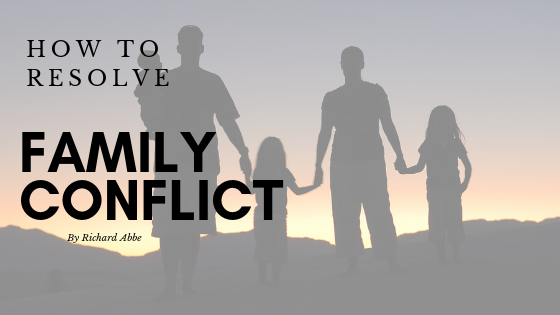Despite what people like to portray on social media, all families fight occasionally. Conflict is in our nature as a way to problem-solve, but it’s important to handle issues in a mindful and conscientious way.
Communication is key when it comes to handling any type of dispute, be it with family, friends or co-workers. People are not mind readers, so making your feelings and intentions heard loud and clear, in a calm and reasonable manner, is the ideal way to resolve issues. Likewise, the person on the receiving end of the dialog should keep an open mind and show compassion for what the sender’s message is truly saying. In the real world, however, societal norms, personality traits, and our own comfort levels regarding conflict may get in the way of a perfect, textbook resolution. The key is to show empathy and consider others’ feelings, in addition to your own.
Children, for example, are extremely intuitive and can suffer long-term effects from family issues that aren’t resolved in a healthy manner. That is why it’s so important to keep children in mind when sorting things out as a family. If parents decide to separate, it’s very important to put your children’s’ needs and feelings at the forefront of all your decision-making. Even in the best-case scenario, kids will be sad about a dramatic life change such as a separation, but if the home life was previously full of unpleasant conflict, the long-term solution of a divided family is sometimes for the best. This is true even if the children can’t see it for themselves. When they get older, they will realize it was for the best, but for now, they can’t help but feel bewildered. The most important thing to remember is to show them they are loved and that the changes occurring are not their fault.
With the advent of electronics, it’s easy to use the internet as a babysitter, but if you notice a child acting up or displaying signs of aggression, it might be time to reduce their screen time. Spend a bit of time each day doing something in the real world, whether it be spent outdoors doing activities or inside reading a book with your kids.
When struggles occur between in-laws, that can also be very stressful for the people caught in the middle, for both children and adults alike. Oftentimes, families that are joined by marriage don’t necessarily hold the exact same beliefs or personality traits, and this can lead to varying levels of disagreements. Even if people are only getting together during family gatherings, it’s helpful if each person shows empathy and thinks outside of their own needs, for the sake of the greater good. If it looks like all parties are capable of a rational discussion, communication will help people air grievances in a healthy way.

